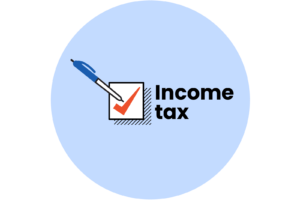Tempted to create a second source of income? Freelancing offers you a convenient way to plump up your savings account while choosing projects you’re interested in. Here’s what every beginner should know, to make this a successful endeavour.
One of the best things about freelancing is that you can tailor the work to fit your needs and schedule. Whether you’re freelancing temporarily to save up for an exotic holiday, or looking to achieve a long-term goal, you can make freelancing work for you.
Here are some considerations to provide you with a realistic picture of what taking on work in your free time is like.
There Are Perks and Pitfalls
Just as with any other job, freelancing has pros and cons. On the plus side, you get to pick and choose your own projects. You could even use this opportunity to explore new career paths. Maybe make an attempt at monetising your hobby? This is a low-risk way of exploring your options, as you always have your primary job to pay the bills.
On the other hand, being your own boss comes with its own challenges. Rather than being a part of the team that shares the load of a project, you are on your own. It falls to you to figure out how to market your skills, bring in clients, manage their expectations, even work out how to keep track of your finances, file taxes and literally everything else.
See our Self Employed Tax Calculator
Be Realistic About the Time You Have
Remember that giving up some of your personal time means you have less free time to take care of your children, daily chores, self-care, and other personal obligations. In order to sustain your freelancing role for a longer period, it’s important to be realistic about how much time you actually have. Take on projects with this consideration and if necessary, restrict how many you work on simultaneously. Burning the candle at both ends eventually takes its toll, so avoid burnout by accounting for your time well. Remember to also take time off so you can recharge, pencil it into your schedule if you have to.
Do Not Use Company Time for Your Side Gig
If you’ve allocated your time realistically, this situation should never arise. Working on your freelancing projects during regular working hours could jeopardise your primary job and land you in hot water. So draw clear boundaries between the two roles. Make it clear to clients that you can take their calls and meetings only after you clock off from your primary job.
Check Your Employer’s Company Policy on Freelancing
Most companies allow employees to freelance on their own time. However, they may have set out certain stipulations that restrict you from working with a competitor or directly working with one of their clients. Some companies even limit you from working independently in the same industry. Read through your contract carefully to understand your obligations.
Get Support
If you have more projects than you can manage on your own, consider partnering with other freelancers. This is a good way to connect with others in the community and those you partner with are likely to send work your way at a later date. Tedious but essential tasks like accounts and taxes can be taken care of by an accountant. The time and peace of mind you gain will be well worth the cost.
Get Used to Record-keeping
To send in accurate invoices and accounts of your work to your clients, create a system to track it. Record how much time it took you to perform certain tasks and at the end, you have a fair idea of how to schedule your time better the next time. Even if you charge a flat fee, recording can help you plan your projects. Depending on how much time it takes, you could even consider increasing or decreasing your fee.
Keep Work Coming In
Since you’re in this for yourself, you will need to spend some time hunting down clients. Securing a project can sometimes be a long-drawn out affair and may even fall through in the end.
Create an online portfolio of your work, keep it updated. Generate some form of social media presence depending on what works for your expertise, (choose platforms where your clients are likely to be).
If you’re freelancing in a field you’ve worked in before, you’re likely to already have a network of people you know. Work to strengthen it. But if you’re freelancing in a completely new field, consider volunteering on a project or two to get a foot in the door and make some contacts.
Remember the work you get today will keep you busy next month. Keep quoting, even when you’re busy.
Under Promise and Over Deliver
When you’re working as part of a company, managing client expectations may not be part of your job. But when you’re freelancing, you’ll discover that it’s a big part of your work.
It is key to remember to stay grounded and be realistic. Ask for the details you will need to figure out the scope of your work and allocate time accordingly. It’s always good to leave a little extra breathing room before your deadline. Be honest about what you can deliver. Don’t let expectations get vague, detail it out as much as possible.
It’s best to not assume anything, get every element clarified. Let clients know in advance, how many rounds of edits you are willing to make. Get the client to sign off, in writing, on what you’ve both agreed on.
Have a Process and Rate Card
You are likely to generate some business from word-of-mouth marketing. Friends, family and happy clients might put your name forward for projects. Have a process in place to understand client requirements, your billing and your schedule, so you can assess whether taking on the project is the best thing for you or not.
Since people you know may ask for a lowered rate, have your answers prepared so you can avoid being caught off guard. Create a contract and have it signed no matter who the client is.
Stay Up to Date on Taxes
Freelancers fall into the category of “self-employed”. This means that as a freelancer, you will have to work out a way to pay taxes on the income you generate from your second job. It helps to keep meticulous records so don’t delay setting up a way to record your finances. Consult an accountant to understand your tax obligations and set up a system that makes sense to you.
Stay on Track
One of the challenges of being your own boss is having to manage your time and goals yourself. Since we are likely to postpone tasks or let ourselves slack off, this could pose a problem. It helps to enter freelancing with a clear purpose or goal in mind. Your goal could be anything from earning a certain sum of money to working on a passion project. Check in with your purpose or your goals every now and then to make sure you’re staying on track.
The pandemic may have changed the way we work for good. More and more desk jobs are turning into online, work-from-home roles. Companies are not as hesitant about bringing freelancers on board. Using your extra time to generate revenue is a smart plan and as long as you’re dedicated and realistic, you can continue this balancing act for as long as you need.





